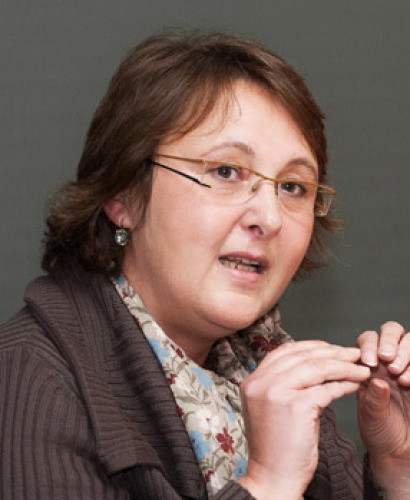
Vesna Leskošek
Vesna Leskošek, Ph.D., is an Associate Professor at the Faculty of Social Work, University of Ljubljana. Her research interests include gender studies, welfare state, social inequalities, poverty and young people. Her doctoral thesis on the first-wave feminism in Slovenia was published in a monograph entitled Zavrnjena tradicija [Rejected Tradition](Založba cf*, 2002). In the recent years she was the editor of Teaching Gender in Social Work (Utrecht University and Stockholm University, 2009) and the co-author of two monographs: Nasilje nad ženskami v Sloveniji (Aristej, 2013) and Zaposleni revni (Sophia, 2013). Further to this, her contributions are regularly published in scientific and professional magazines and books, including the chapters in From welfare fraud to welfare as fraud (in the monograph published by Ashgate, 2014) and The role of feminism in protecting social rights (in the monograph published by the Centre of Women's Studies in Zagreb, Croatia, 2013).
My involvement with the City of Women festival became more active in 2003 when, with the then festival co-curator Bettina Knaup, we organised a discussion panel on the role of women's resistance movements of that time. It was entitled Gender Matters to Capital: Women's Struggles and the Anti-Globalist Movement. The discussion met with a huge response because it demonstrated that gender relations within the resistance are ignored in the name of the joint struggle against the oppressors. However, the revolts of the recent years showed again that women – even though in the centre of this resistance – are always somewhere on the margins of power. I firmly believe that women today, and most definitely at that time, have to create their own autonomous spaces to be able to speak at all. I also believe that science and art should be connected, because art is a field of expression focused on creativity and freedom of expression without the censorships, protocols or myths of objective science. For this reason in 2004 we prepared in collaboration with Nina Kozinc and the late Dušan Podgornik in the Slovene Ethnographic Museum (later in other Slovenian cities) an extensive exhibition entitled The Never-Ending Story of Intolerance. The intention was to display the overwhelming expressions of hatred collected from written, photographic, internet and other sources, illustrating that Slovenia is becoming a closed and phobic country, hostile towards anything which slightly deviates from a norm.
The City of Women festival and I became really close in 2010 when I was invited to become the Honorary President, which for me was a special honour as well as an opportunity to search for new means of expression to present my work and belief.